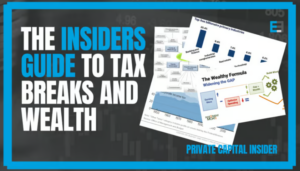We’ve had a few people write in asking questions about the new $5 million raise cap for Reg-CF offers that goes into effect on Monday…
And if existing Reg-CF offers will automatically be able to raise up to $5m.
Here’s the short answer: No.
Here’s the medium answer: The issuer would need to amend their existing offering by filing a Form-C/A with the SEC to increase the amount they want to raise.
However, because this would constitute a “material change” in the offering, the issuer would need to reconfirm all investments that haven’t already been closed (more on this in another email).
Here’s the longer answer: Depending on a lot of factors, it might not make sense for an issuer to raise more money, regardless of the increase.
Why?
Well, it all comes back to the critical questions every business must answer when raising capital…
What is the Cost of Capital?
Here’s what I mean…
In the same way you can go to the supermarket (or grocery store) to buy groceries…
You can go to the Capital Markets to buy money.
And there’s no shortage of vendors who are willing to “sell” you their money…
But, in exchange for what?
It’s called a Financial Instrument.
In the same way a business can sell its products and services – or an asset it owns – to “raise capital” (i.e. generate revenue)…
It can sell a Financial Instrument as well. These financial instruments include equity, debt, and exotics such as derivatives, coins, or SAFEs.
Every issuer has to decide if the Cost of Capital – which is what they have to “sell” to get the money they need – is worth it for where their business is right now…
Or if they’d be better off increasing their valuation by hitting milestones so they can raise capital at more favorable rates or with less dilution.
Understanding this dynamic is really important for you as a private market investor.
Whether you realize it or not… as an investor, you are now a “vendor” in the Capital Markets.
And if you want your “business” to make money, it means you need to know what type of financial instruments are out there (equity, debt, and exotics)…
You need to understand how to value those financial instruments (i.e. “valuation”)…
You need to understand how those financial instruments are allegedly supposed to perform (i.e. the risk:reward ratio)…
And more important, you have to determine if those financial instruments will help you reach your own personal financial goals.
Eventually, this means you need to have a durable process for finding the right deals and doing proper due diligence.
Of course, that’s our goal here at Equifund — to present you with vetted private market opportunities and help educate you so you can make better investment decisions.
Sincerely,
Jake Hoffberg – Publisher
Equifund













